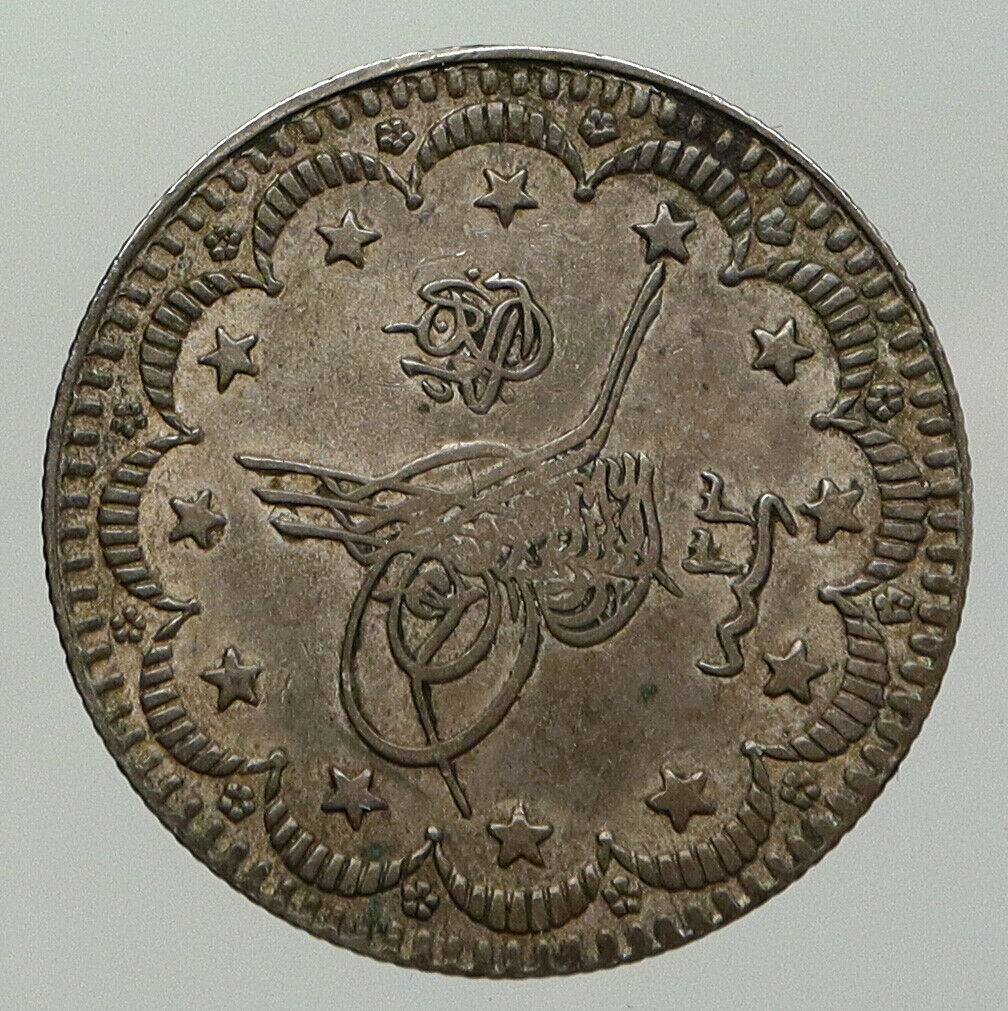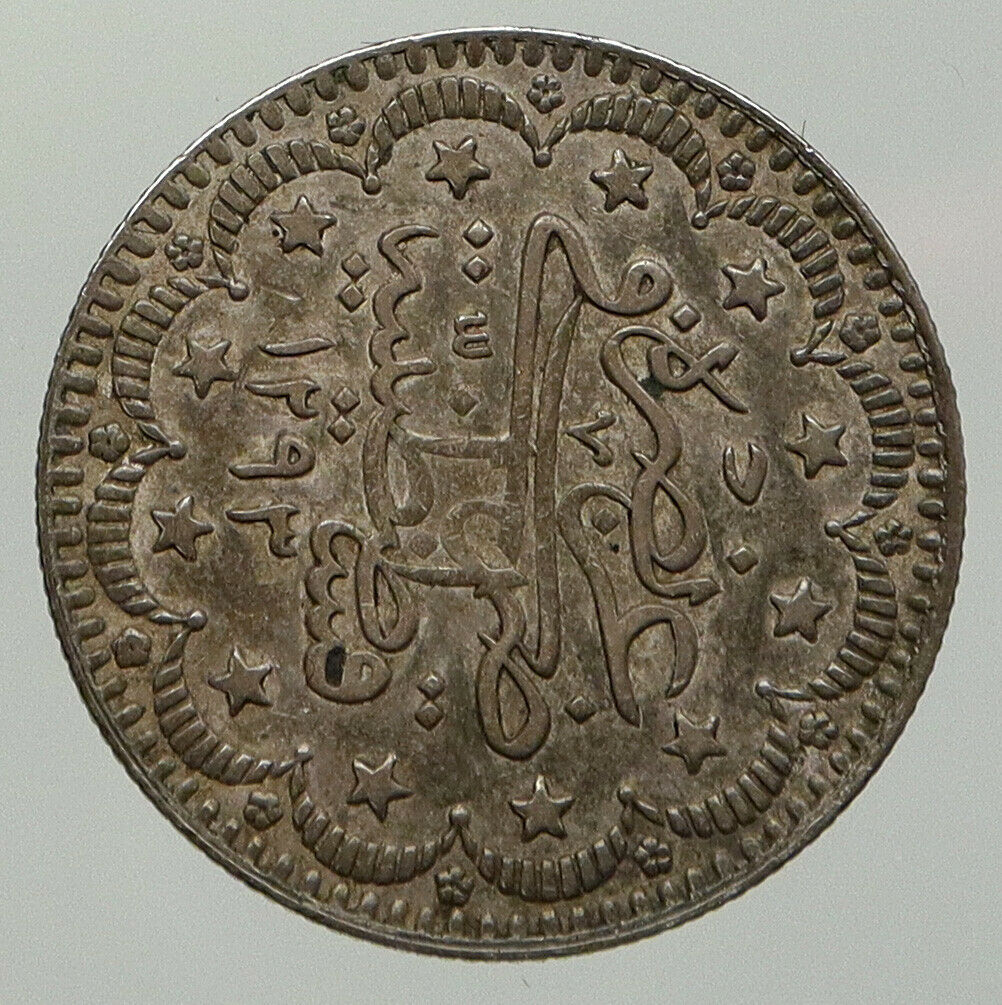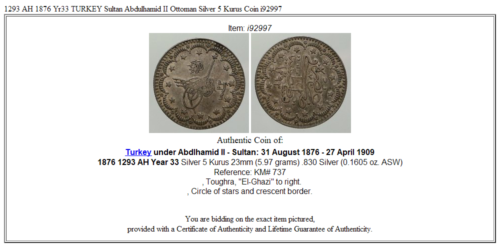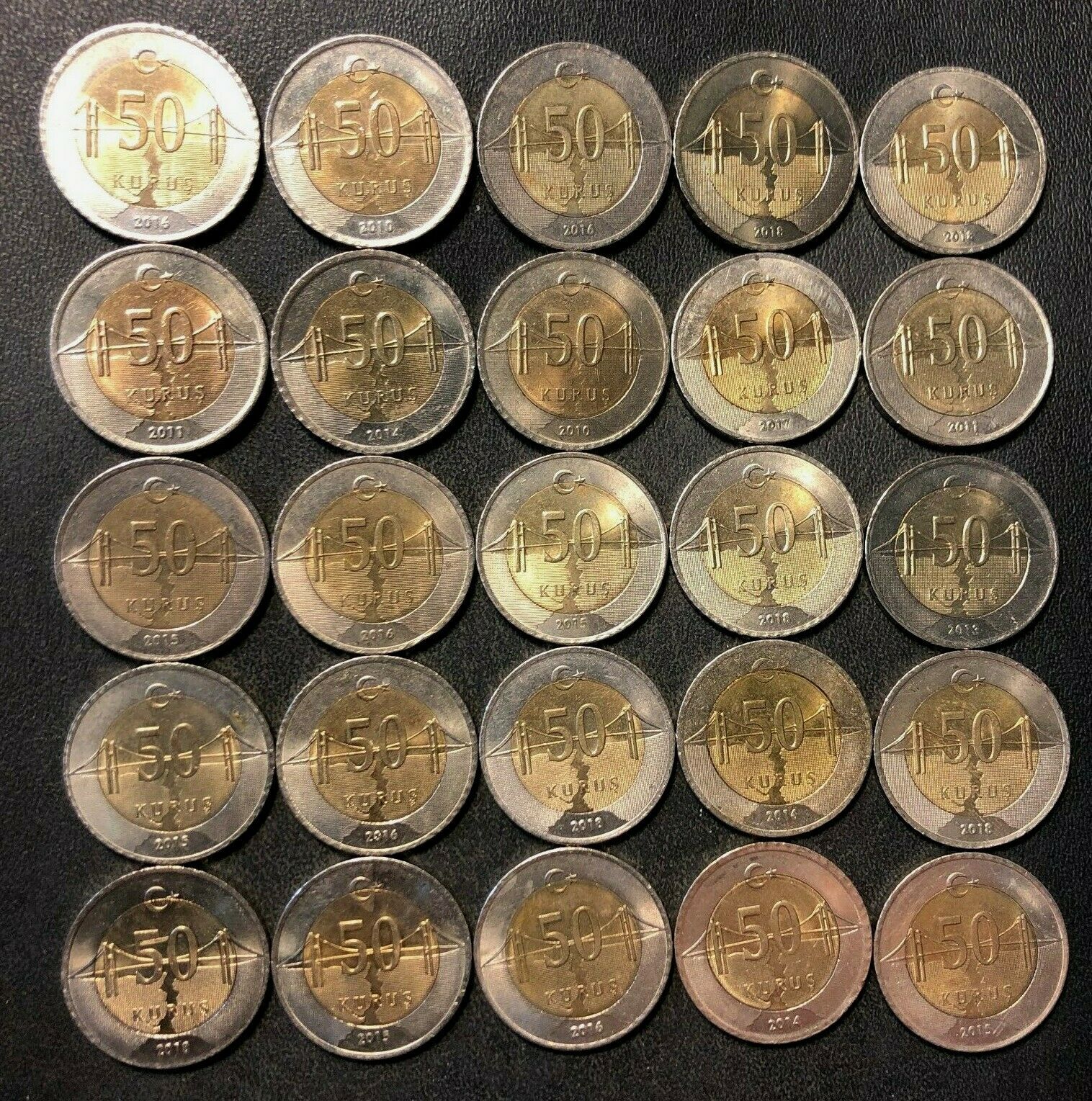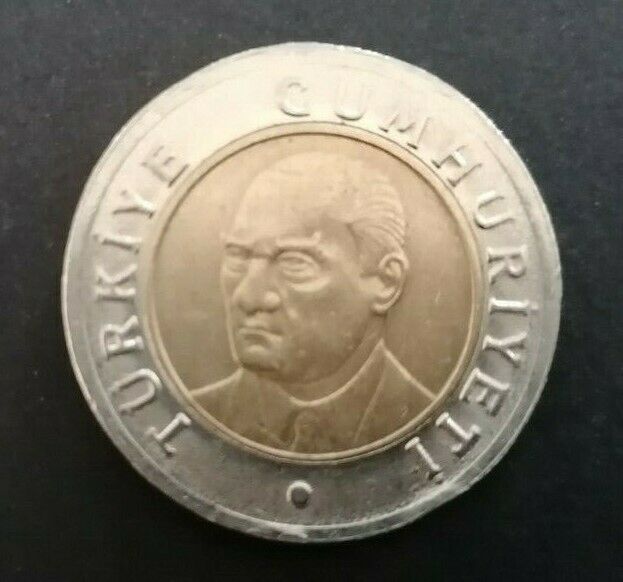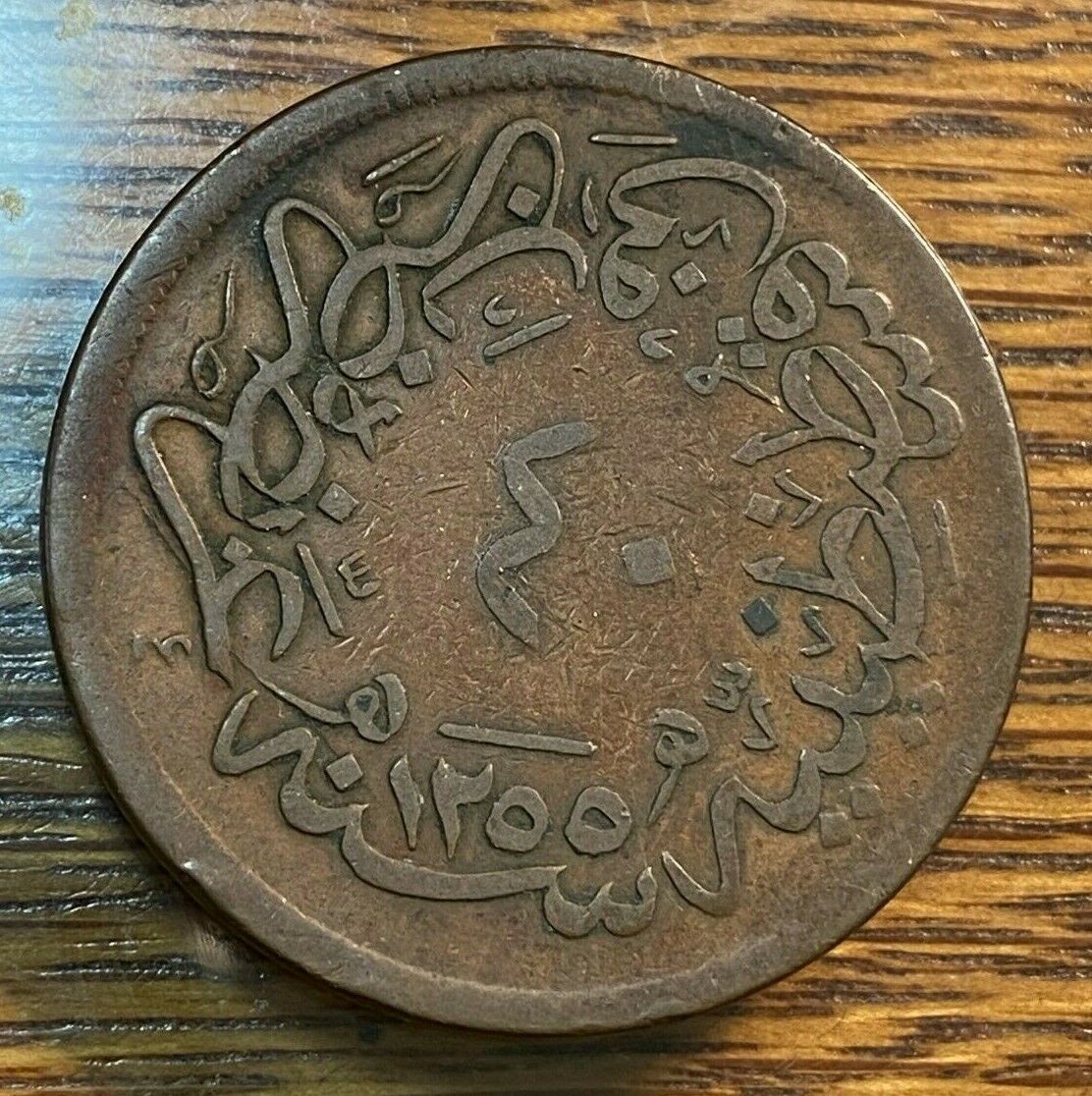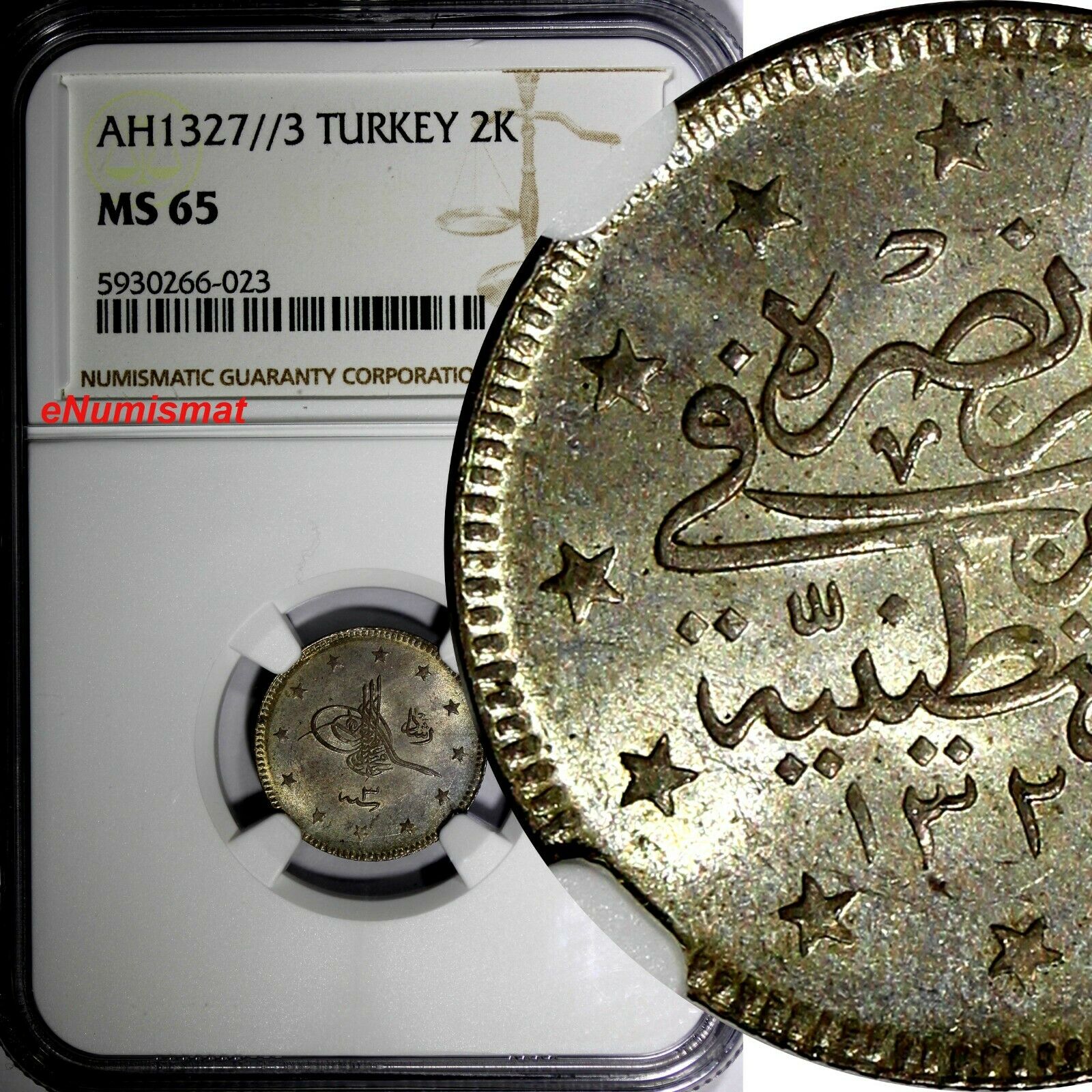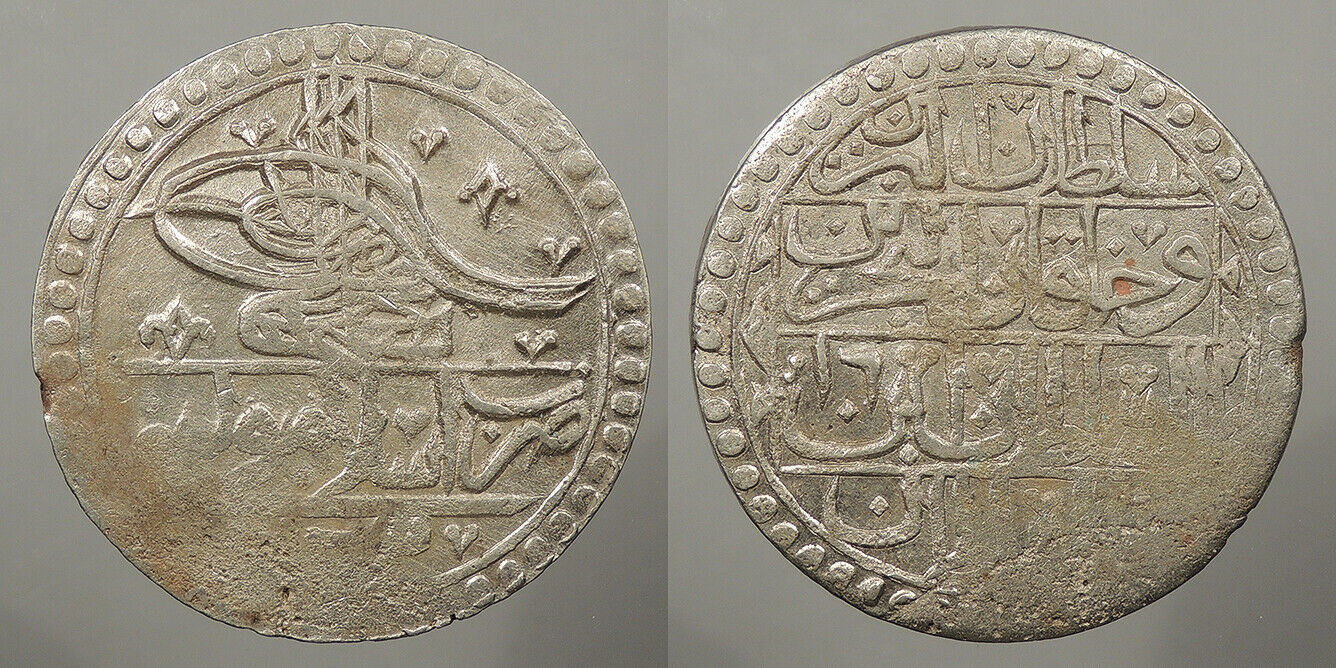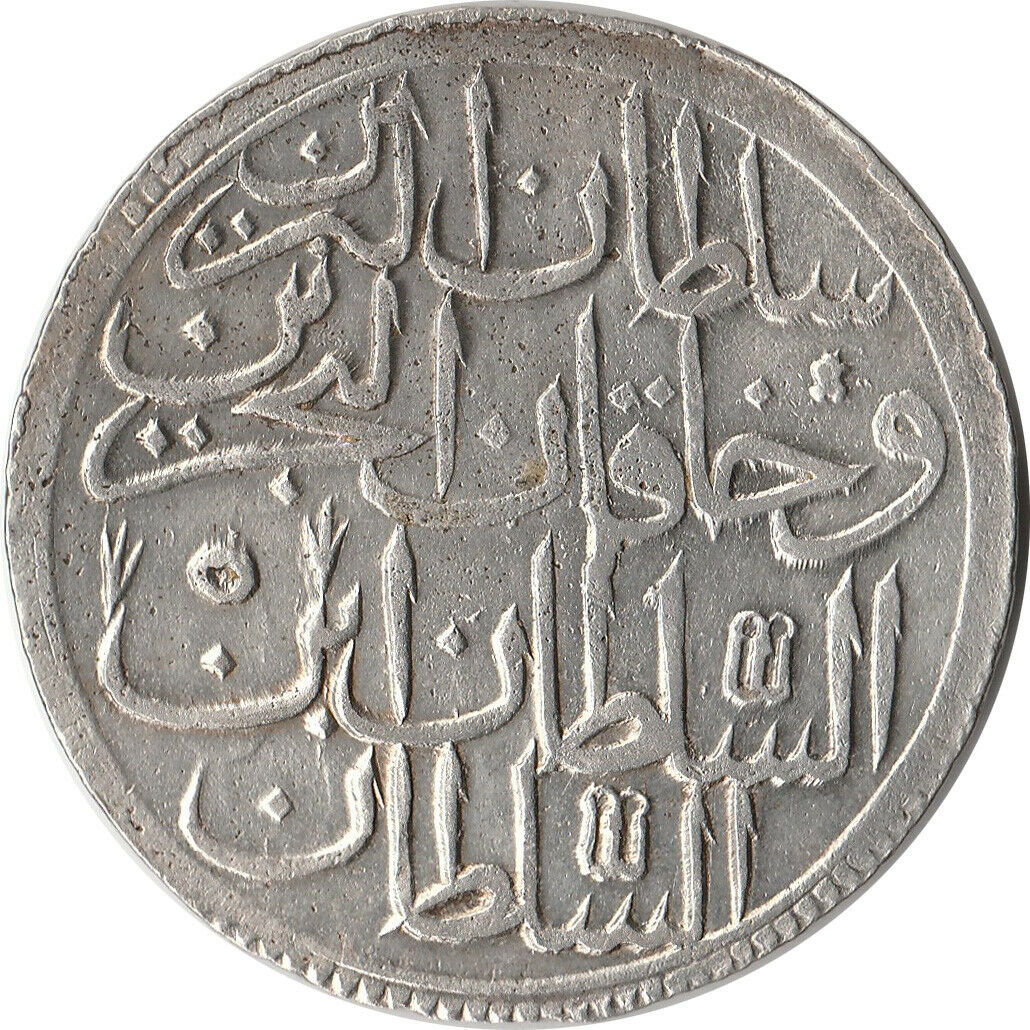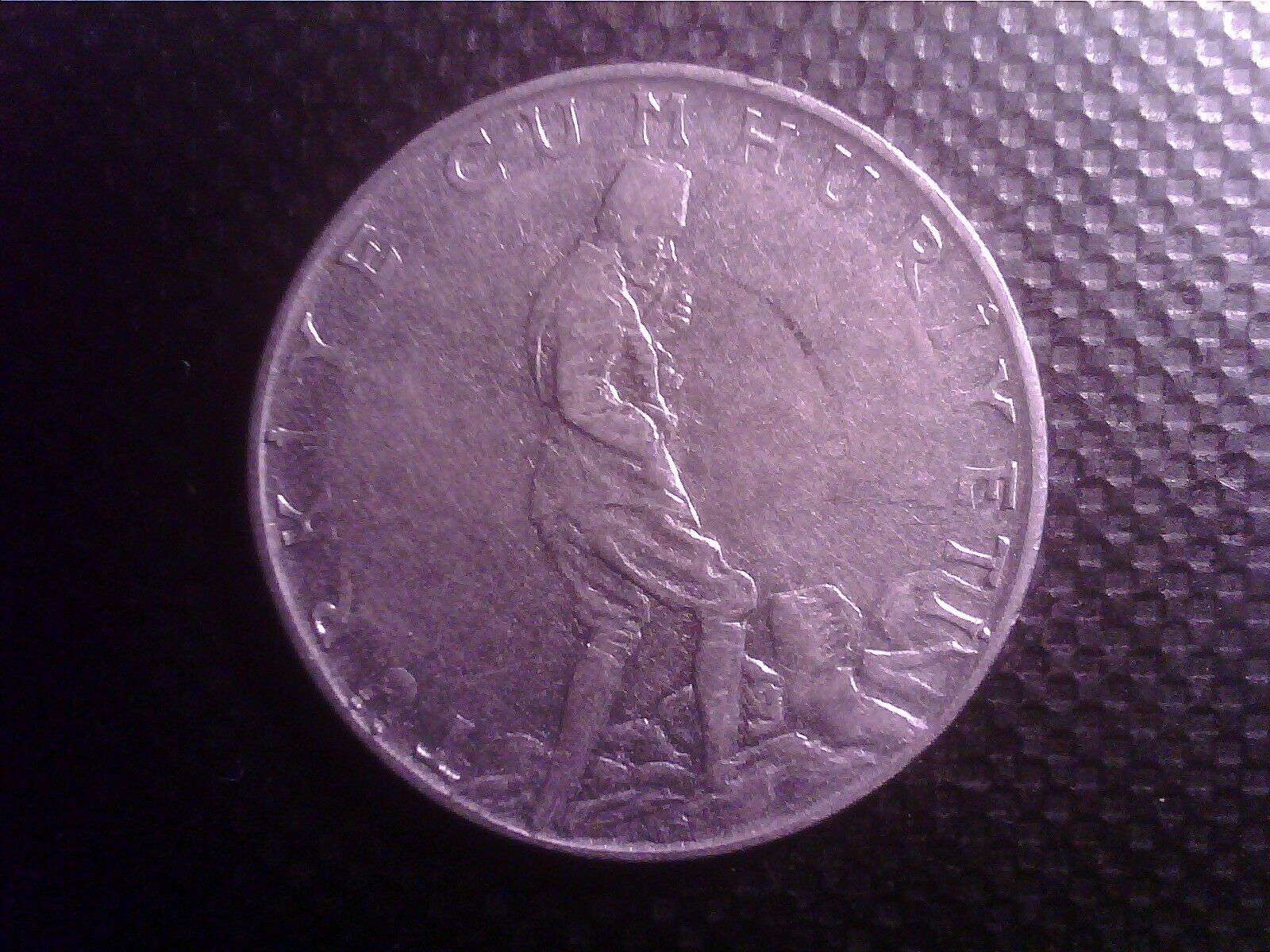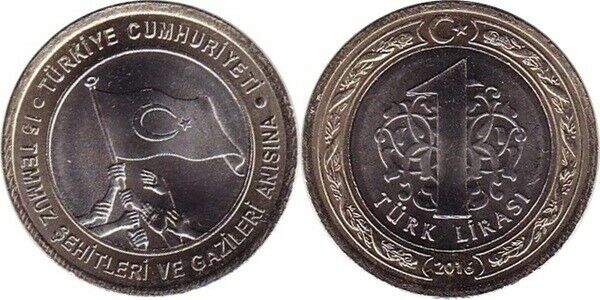-40%
1293 AH 1876 Yr33 TURKEY Sultan Abdulhamid II Ottoman Silver 5 Kurus Coin i92997
$ 160.85
- Description
- Size Guide
Description
Item:i92997
Authentic Coin of:
Turkey
under
Abdülhamid II
- Sultan: 31 August 1876 - 27 April 1909
1876 1293 AH Year 33
Silver 5 Kurus 23mm (5.97 grams) .830 Silver (0.1605 oz. ASW)
Reference: KM# 737
٣ سنة , Toughra, "El-Ghazi" to right.
عز نصره ضرب في قسطنطينيّة ١٢٩٣ , Circle of stars and crescent border.
You are bidding on the exact item pictured, provided with a Certificate of Authenticity and Lifetime Guarantee of Authenticity.
Abdul Hamid II
or
Abdülhamid II
(Ottoman Turkish: عبد الحميد ثانی,
romanized:
Abdü’l-Ḥamîd-i-
s
ânî
; Turkish:
II. Abdülhamid
; 21 September 1842 – 10 February 1918) reigned as the 34th Sultan of the Ottoman Empire - the last Sultan to exert effective control over the fracturing state. He oversaw a period of decline, with rebellions (particularly in the Balkans), and he presided over an unsuccessful war with the Russian Empire (1877–1878) followed by a successful war against the Kingdom of Greece in 1897. Abdulhamid II ruled from 31 August 1876 until his deposition shortly after the 1908 Young Turk Revolution, on 27 April 1909. In accordance with an agreement made with the Republican Young Ottomans, he promulgated the first Ottoman Constitution of 1876 on 23 December 1876, which was a sign of progressive thinking that marked his early rule. However, in 1878, citing disagreements with the Ottoman Parliament, he suspended both the short-lived constitution and the parliament.
The modernization of the Ottoman Empire continued during his reign, including reform of the bureaucracy, the extension of the Rumelia Railway and of the Anatolia Railway, and the construction of the Baghdad Railway and of the Hejaz Railway. In addition, systems for population registration and control over the press were established, along with the first local modern law-school in 1898. The most far-reaching of the reforms occurred in education: many professional schools were established for fields including the law, arts, trades, civil engineering, veterinary medicine, customs, farming, and linguistics. Although Abdul Hamid II closed Istanbul University in 1881, it re-opened in 1900, and a network of secondary, primary, and military schools was extended throughout the empire. German firms played a major role in developing the Empire's railway- and telegraph-systems. During Abdul Hamid's reign the Ottoman Empire became bankrupt, leading to the establishment of Ottoman Public Debt Administration in 1881.
Outside the Ottoman Empire, Sultan Abdul Hamid II gained the nickname the
Red Sultan
or the
Bloody Sultan
because of the Hamidian massacres of Armenians and Assyrians of 1894–1896 and the use of the secret police to silence dissent and the Young Turks movement. Large sections of the Ottoman intelligentsia sharply criticised and opposed him. Amongst the many assassination attempts against him, the most famous became the Yıldız assassination attempt of 1905 by the Armenian Revolutionary Federation.
Turkey
, officially the
Republic of Turkey
(Turkish:
Türkiye Cumhuriyeti
(help·info); pronounced [ˈtyɾcije d͡ʒumˈhuɾijeti]), is a transcontinental country in Eurasia, mainly in Anatolia in Western Asia, with a smaller portion on the Balkan peninsula in Southeast Europe. Turkey is bordered by eight countries with Greece and Bulgaria to the northwest; Georgia to the northeast; Armenia, the Azerbaijani exclave of Nakhchivan and Iran to the east; and Iraq and Syria to the south. The country is encircled by seas on three sides with the Aegean Sea to the west, the Black Sea to the north, and the Mediterranean Sea to the south. The Bosphorus, the Sea of Marmara, and the Dardanelles, which together form the Turkish Straits, divide Thrace and Anatolia and separate Europe and Asia. Ankara is the capital while Istanbul is the country's largest city and main cultural and commercial centre. Approximately 70-80% of the country's citizens identify themselves as ethnic Turks. Kurds are the largest minority at about 20% of the population, and other ethnic minorities include Circassians, Albanians, Arabs, Bosniaks and Laz. Minority languages spoken today in Turkey include Kurmanji, Arabic, Zaza, Kabardian and several others.
The area of Turkey has been inhabited since the Paleolithic age by various ancient Anatolian civilisations, as well as Assyrians, Greeks, Thracians, Phrygians, Urartians and Armenians. After Alexander the Great conquered these lands, the area was Hellenized, a process which continued under the Roman Empire and its transition into the Byzantine Empire. The Seljuk Turks began migrating into the area in the 11th century, and their victory over the Byzantines at the Battle of Manzikert in 1071 symbolizes the start of Turkification in Anatolia. The Seljuk Sultanate of Rûm ruled Anatolia until the Mongol invasion in 1243, when it disintegrated into small Turkish beyliks.
From the end of the 13th century the Ottomans started uniting Turkish principalities in Anatolia and then went on to create an empire that encompassed much of Southeast Europe, West Asia and North Africa. The Ottoman Empire became a world power beginning with the reign of Suleiman the Magnificent in the early modern period. It remained powerful and influential for two more centuries, until important setbacks in the 18th and 19th century forced it to cede strategic territories in Europe, which signalled the loss of its former military strength and wealth. After the 1913 Ottoman coup d'état, which effectively put the country under the control of the Three Pashas, the Ottoman Empire decided to join the Central Powers during World War I. During the war, the Ottoman government committed genocides against its Armenian, Assyrian and Pontic Greek subjects. Following the war, the conglomeration of territories and peoples that formerly comprised the Ottoman Empire was partitioned into several new states. The Turkish War of Independence, initiated by Mustafa Kemal Atatürk and his colleagues against occupying Allies, resulted in the abolition of monarchy in 1922 and the establishment of the Republic of Turkey in 1923, with Atatürk as its first president. Atatürk enacted numerous reforms, many of which incorporated various aspects of western thought, philosophy, and customs into the new form of Turkish government.
Turkey is a charter member of the UN, an early member of NATO, the IMF and the World Bank, and a founding member of the OECD, OSCE, BSEC, OIC and G-20. After becoming one of the first members of the Council of Europe in 1949, Turkey became an associate member of the EEC in 1963, joined the EU Customs Union in 1995 and started accession negotiations with the European Union in 2005 which have been effectively stopped by the EU in 2017 due to "Turkey's path toward autocratic rule". Turkey's economy and diplomatic initiatives led to its recognition as a regional power while its location has given it geopolitical and strategic importance throughout history.
Turkey is a secular, unitary, parliamentary republic; slated to transition to a presidential system in 2019, following a 2017 referendum. However, Turkey's current administration headed by president Tayyip Erdoğan of the AKP has enacted measures to increase the influence of Islam, reversed and undermined secularist policies, and has reversed earlier reforms such as Freedom of the Press.
Frequently Asked Questions
Mr. Ilya Zlobin
, world-renowned expert numismatist, enthusiast, author and dealer in authentic ancient Greek, ancient Roman, ancient Byzantine, world coins & more.
Who am I dealing with?
You are dealing with Ilya Zlobin, ancient coin expert, enthusiast, author and dealer with an online store having a selection of over 15,000 items with great positive feedback from verified buyers and over 10 years experience dealing with over 57,000 ancient and world coins and artifacts. Ilya Zlobin is an independent individual who has a passion for coin collecting, research and understanding the importance of the historical context and significance all coins and objects represent. Most others are only concerned with selling you, Ilya Zlobin is most interested in educating you on the subject, and providing the largest selection, most professional presentation and service for the best long-term value for collectors worldwide creating returning patrons sharing in the passion of ancient and world coin collecting for a lifetime.
How long until my order is shipped?
Orders are shipped by the next business day (after receipt of payment) most of the time.
How will I know when the order was shipped?
After your order has shipped, you will be left positive feedback, and that date could be used as a basis of estimating an arrival date. Any tracking number would be found under your 'Purchase history' tab.
USPS First Class mail takes about 3-5 business days to arrive in the U.S. International shipping times cannot be estimated as they vary from country to country.
Standard international mail to many countries
does not
include a tracking number, and can also be slow sometimes.
For a tracking number and signature confirmation, you may want to do Express Mail International Shipping, which costs more, however, is the fastest and most secure. Additionally you may be able to receive your order in as little as 3-5 business days using this method. For Express Mail International, it may be possible to place up to 10-15 items in one package (for the one shipping cost) as it is flat rate envelope, which may be the most cost-effective, secure and fastest way to receive items internationally. Send me a message about this and I can update your invoice should you want this method.
Getting your order to you, quickly and securely is a top priority and is taken seriously here.
Great care is taken in packaging and mailing every item securely and quickly.
Please be aware, I cannot take responsibility for any postal service delivery delays, especially for international packages as it may happen in rare instances.
What is a certificate of authenticity and what guarantees do you give that the item is authentic?
Each of the items sold here, is provided with a Certificate of Authenticity, and a Lifetime Guarantee of Authenticity, issued by a world-renowned numismatic and antique expert that has identified over 57,000 ancient coins and has provided them with the same guarantee. You will be very happy with what you get with the COA; a professional presentation of the coin, with all of the relevant information and a picture of the coin you saw in the listing. Additionally, the coin is inside it's own protective coin flip (holder), with a 2x2 inch description of the coin matching the individual number on the COA.
On the free-market such a presentation alone, can be considered a - value all in itself, and it comes standard with your purchases from me,
FREE.
With every purchase, you are leveraging my many years of experience to get a more complete context and understanding of the piece of history you are getting. Whether your goal is to collect or give the item as a gift, coins presented like this could be more prized and valued higher than items that were not given such care and attention to.
Buy a coin today and own a piece of history, guaranteed.
Is there a money back guarantee?
I offer a 30 day unconditional money back guarantee. I stand behind my coins and would be willing to exchange your order for either store credit towards other coins, or refund, minus shipping expenses, within 30 days from the receipt of your order. My goal is to have the returning customers for a lifetime, and I am so sure in my coins, their authenticity, numismatic value and beauty, I can offer such a guarantee.
When should I leave feedback?
Once you receive your order, please leave a positive feedback. Please don't leave any negative feedbacks, as it happens sometimes that people rush to leave feedback before letting sufficient time for their order to arrive. Also, if you sent an email, make sure to check for my reply in your messages before claiming that you didn't receive a response. The matter of fact is that any issues can be resolved, as reputation is most important to me. My goal is to provide superior products and quality of service.
How and where do I learn more about collecting ancient coins?
Visit the "
Guide on How to Use My Store
" for on an overview about using my store, with additional information and links to all other parts of my store which may include educational information on topics you are looking for.
